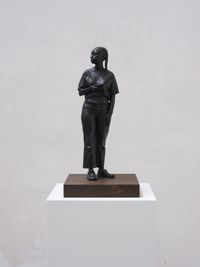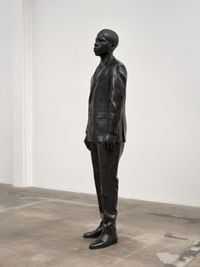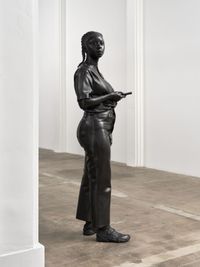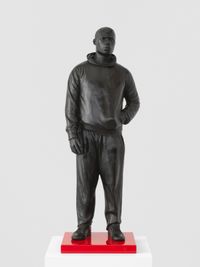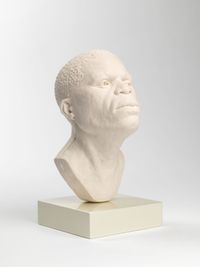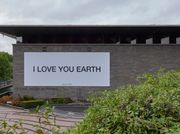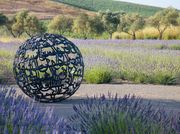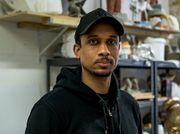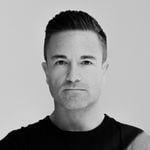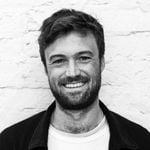Thomas J Price is a contemporary British artist best-known for his figurative sculptures. Price combines Western sculptural traditions and contemporary materials to challenge the pervasive problems of the underrepresentation and misconception of Black people in the art world and in wider society.
Read MoreIn 2001, Price garnered attention for his performance Licked (2001), during which he licked the walls of an entire gallery over a period of three days, covering it with his saliva until his bloodied tongue left marks all across the once-white surfaces. The artist, who was then a student at London's Chelsea College of Arts, had been inspired by the success of the Young British Artists (YBAs) and the spectacle and sensationalism at the heart of their notoriety. In an interview with Ocula Magazine in 2019, Price recalls the questions he had at the inception of the now-infamous piece: 'Would people come and see it, I wondered? Would those entering the space after the performance believe it had taken place?' Licked was later featured in the BBC 4 documentary Where Is Modern Art Now? in 2010 alongside the work of Grayson Perry, Michael Landy, Sir Anthony Caro, and Cornelia Parker.
The year after he performed Licked, Price began working with stop-motion animation to capture what he describes in his Ocula Magazine interview as 'in-between' moments: 'genuine moments when you're not smiling for someone or particularly conscious of how you're presenting yourself'. In his animated series 'Man' (2012), for example, plasticine sculptures of Black male heads blink and move their eyes from side to side with pensive expressions that hint at states of mental preoccupation.
In the mid-2000s, while studying towards an MFA at the Royal College of Art, Price began creating his figurative sculptures of ordinary Black men, as seen in the bronze busts of his 'Head' series, which he began in 2004. Alongside these sculpted fragments of the body, Price made full-length bronze sculptures of varying size, like Man on a Horse (Kings Avenue) (2011) and the life-size, Network (2013). Both are imagined figures—composite characters that draw from real life observation and images of Black men in the media and popular culture. Price takes those seldom seen favourably, if at all, in Euro-American art history and places them at the heart of its hallowed institutions to prompt a deeper and more critical reflection on commonly held perceptions of Black men.
While his figurative mode of representation reflects a long-standing interest in ancient Egyptian, Greek, and Roman sculpture, Price is most concerned with contemporary subjects. He departs from the idealised deities, heroes, and civic leaders made monumental in ancient times as a mark of rank, choosing, instead, to ennoble the ordinary man in casual, everyday attire. This intersection of ancient and modern is also evident in Price's 'Numen' series (2016): a suite of sculpted aluminium heads made using the ancient lost-wax casting technique, dating back several millennia. Price continues to expand his practice to include new mediums and subject matter as in his recent work, Lay it Down (On the Edge of Beauty) (2019)—a bronze sculpture of a young woman's head that hints at the cultural and aesthetic significance of certain hairstyles among women of colour.
Price's work is included in a number of private and public collections including Derwent London, Murderme, and the Rennie Collection. He has also had numerous solo exhibitions including at the Yorkshire Sculpture Park (2014) and National Portrait Gallery, London (2016). In 2019, The Power Plant Contemporary Art Gallery in Toronto opened a solo exhibition dedicated to the artist's work entitled Ordinary Men (22 June–2 September 2019). The exhibition features a suite of sculptures presented both inside and outside the gallery, including a trio of newly commissioned sculptures exhibited alongside smaller bronze pieces and photographs that address the misrepresentations and absences of Black bodies within the traditions of classical sculpture.
Price lives and works in London.
Sherry Paik | Ocula | 2019
